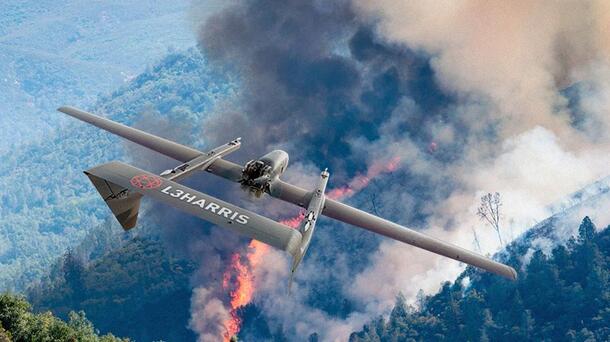The heroic first responders recently began using L3Harris’ advanced FVR-90 drone and sensor technology to fly safely at high altitudes over the fires and beam real-time visual and heat imagery back to command centers. The imagery provides important situational awareness – enabling them to better spot fire trends and determine the best and safest way to deploy rescue workers on the ground.
Unlike consumer off-the-shelf quadcopters or multi-rotor models, the FVR-90 fixed-wing aircraft can take off vertically and land in areas that are too difficult for conventional aircraft. It can fly non-stop for 15 hours, be operated from land or sea and carry 20 pounds of sensors.
Bridger Aerospace, an aerial firefighting and drone solutions company, uses the FVR-90 to support emergency operations nationwide. The drones are operated by remote pilots, many with extensive military backgrounds, and directed by firefighters and rescue workers.
“Being able to do things at a higher altitude, longer endurance and using bigger payloads is what makes the biggest difference,” said Weston Irr, Director of Unmanned Aircraft Systems, Bridger Aerospace. “We are really leaning forward with this technology. It is still a few years ahead of its time.”
There are over 15 active L3Harris drones that have flown a total of more than 1000 hours with nearly 540 launch and recoveries including the Cinnabar fire in Montana, Bighorn fire in Arizona, and El Dorado fire in California. These drones are engineered in Tucson, Arizona and manufactured in Ashburn, Virginia and are capable of aiding in any incident in all 50 states within 72 hours.
“Our unique technology can make a difference in emergency operations and help save lives,” said Dave Duggan, President, Precision Engagement Systems, L3Harris. “The firefighters and rescue workers are the true heroes. Our technology is providing a tool to help improve safety and decision making.”
